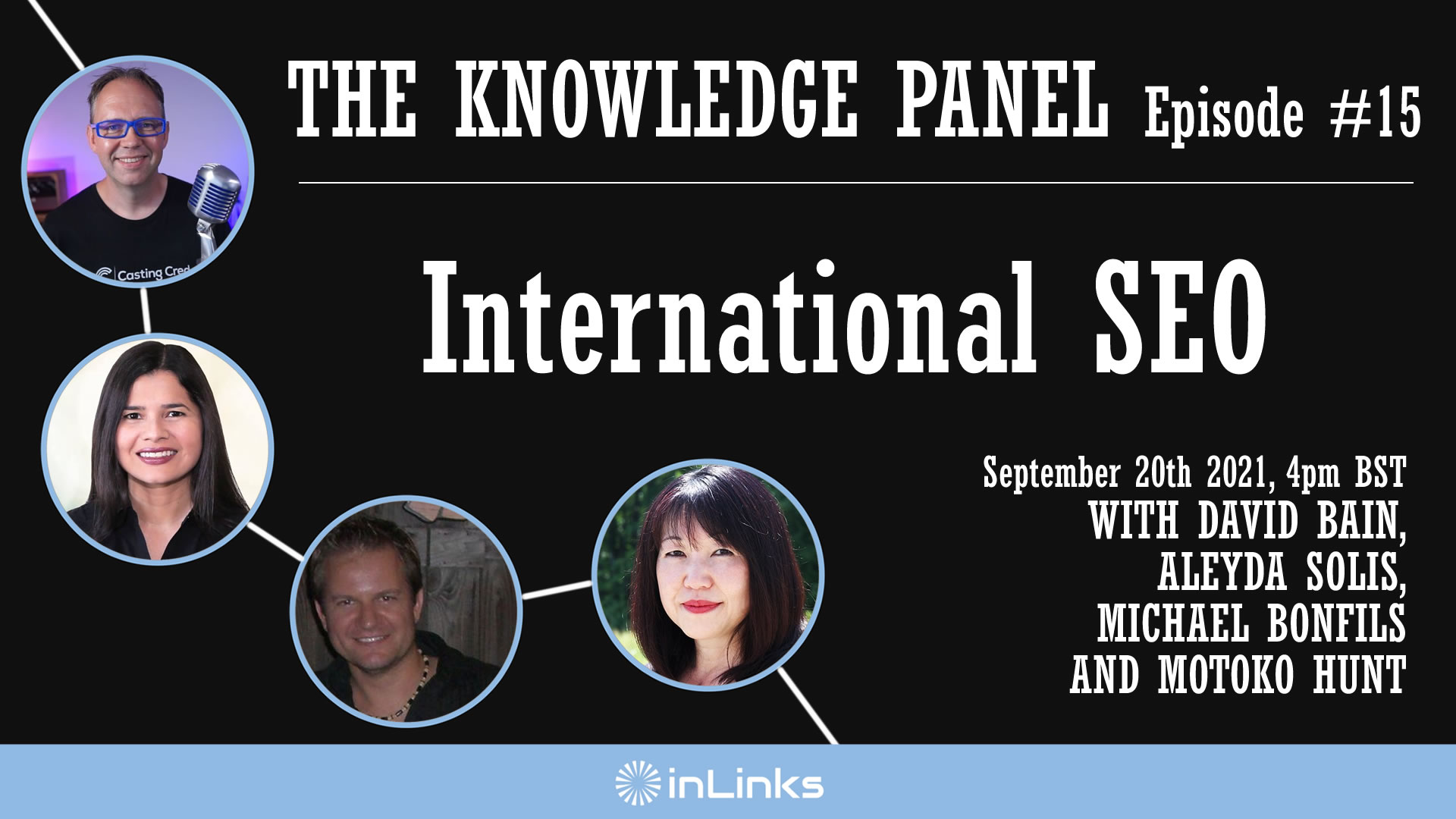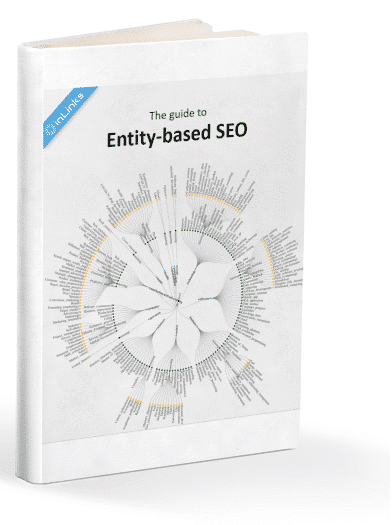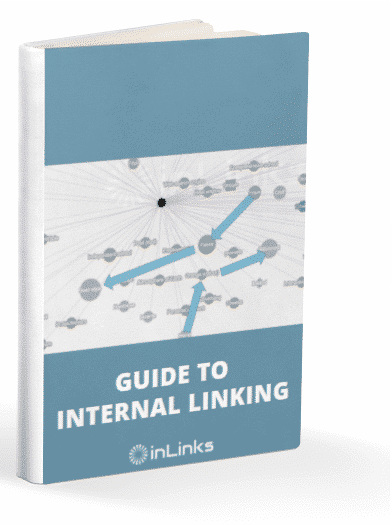What does it take to be a success with international SEO in 2021? Is HREFLANG still king or are there other key elements to optimizing your site/s around the world? And what about countries where Google isn’t the leading search engine? Are other search engines looking for something else entirely?

Joining David Bain to discuss that on episode 15 of the Knowledge Panel show is Aleyda Solis from Orainti, Michael Bonfils from SEM International and Motoko Hunt from AJPR.
Sign up below to watch future episodes live…
Want to Read Instead? Here is a Summary
When it comes to international SEO, many businesses tend to focus solely on Google, assuming that what works in their home country will seamlessly translate to success worldwide. However, this approach overlooks the intricacies of local markets, languages, and search engine preferences. In this discussion, we delve into the nuances of international SEO and how different search engines shape the optimization landscape.
Diverse Search Engine Landscapes
In this episode of “The Knowledge Panel,” our panelists shed light on the multifaceted world of international SEO. They stress that while Google is a dominant player globally, the landscape varies significantly across countries. Naver in South Korea, Yandex in Russia, and Baidu in China all have distinct characteristics and require tailored strategies.
Beyond Translations: Localization is Key
Rather than taking a one-size-fits-all approach, our experts emphasize the importance of localizing content. Elita Solis, a prominent search personality and founder of Orienté, points out that translating content without considering cultural nuances can hinder success. For instance, assuming that a Spanish-language site targeting Latin America can simply be a translation of the US version is a grave mistake. Each Spanish-speaking country has its own dialects, idioms, and preferences that must be considered for effective localization.
Targeting the Right Audience
Matoko Hunt, an experienced international SEO specialist, highlights the significance of understanding the audience in each country. What works for keywords and content in one region might not resonate with users in another. The key is to craft content that aligns with local search behaviors, ensuring that the right keywords and phrases are used to capture the target audience effectively.
Strategies for Different Search Engines
Naver, Yandex, and Baidu are just a few examples of search engines that require distinct strategies. In addition to language, these platforms consider cultural norms, user behaviors, and indexing methods. While Google’s influence extends across many countries, businesses must be prepared to adapt their approaches to suit the specific dynamics of these platforms.
In the ever-expanding digital landscape, understanding the nuances of international search engine optimization (SEO) has become essential for businesses aiming to reach global audiences. While it’s crucial to ensure your content is linguistically accurate and technically optimized, diving deeper into cultural insights and strategic keyword research can elevate your international SEO game. In this blog post, we’ll explore expert insights from three experienced professionals on the lesser-discussed aspects of international SEO.
Cultivating Cultural Awareness
When venturing into international markets, it’s easy to overlook the importance of cultural understanding. While language is crucial, the culture associated with a language can impact how your content is received. As Michael Bonfils puts it, “probably culture. Everybody focuses on language, they focus on technical, and they focus on nothing on culture, and I think that’s a big miss.” Understanding cultural nuances, values, and behaviors helps tailor your content and approach, building trust and engagement with your target audience.
Transcending Translation Challenges
Machine translation tools have made strides in recent years, yet the quality of translations varies across languages. Motoko Hunt underscores the importance of translations that go beyond words: “It’s not just the translation, the wording mistakes, or anything like that, but in addition to that, we need to advise our clients to update the tone of voice… tailored for the Japanese audience.” While machine translation can serve as an initial draft, involving native speakers to fine-tune content ensures accuracy and culturally appropriate messaging.
Deconstructing Domain Strategies
Choosing the right domain structure for international SEO can be a perplexing challenge. Alida Solis recommends a comprehensive approach: “The best way to move forward in a much more cost-efficient way and fast… is to leverage the current gTLD authority by creating subdirectories.” Evaluating the competitive landscape and link profiles can guide your decision on whether to use country-code top-level domains (ccTLDs), subdomains, or subdirectories. Remember, business goals, legal requirements, and industry-specific limitations can also impact your domain strategy.
International Keyword Research
International keyword research goes beyond translating keywords into target languages. Alida Solis suggests validating keywords with native speakers who understand the industry’s context and nuances. Motoko Hunt adds that understanding local search behavior is critical: “To assume that they will just need to translate the content… that will be enough, right? … You will tend to need to add hreflang annotations… prioritize those pages that are ranking in the wrong country.” In short, international keyword research involves a blend of translation, validation, and contextualization.
Harnessing Technical Insights
Technical optimization plays a pivotal role in international SEO. However, it’s not just about using the right hreflang tags or geotargeting settings. Michael Bonfils highlights the importance of geolocating your hosting: “Pages download really quickly in the states, [but] take 15 seconds in Japan.” Understanding hosting location, site speed, and ensuring an optimized user experience in each target country can enhance your SEO performance.
Conclusion
International SEO is an intricate dance of language, technology, culture, and strategy. To truly succeed in global markets, businesses must move beyond language barriers and delve into cultural sensitivity, validated translations, and domain strategies that align with their goals. By embracing cultural insights, local nuances, and technical best practices, you can elevate your international SEO efforts and make a meaningful impact in diverse markets.
In the ever-evolving world of international SEO, it’s clear that success goes beyond relying solely on Google. Businesses must adopt a comprehensive approach that accounts for regional differences, search engine preferences, and cultural nuances. By customizing strategies to fit each target market, brands can unlock the true potential of international SEO and expand their global reach.
Connect with the Experts:
Alida Solis: LinkedIn | Website
Motoko Hunt: LinkedIn | Website
Michael Bonfils: LinkedIn
Remember, while international SEO can be challenging, the rewards of reaching global audiences and expanding your business’s horizons are well worth the effort.





Leave a Reply
Want to join the discussion?Feel free to contribute!